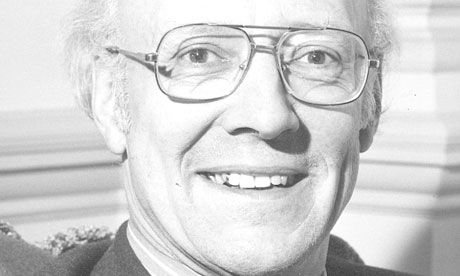
Maurice Line, who has died aged 82, was a leading figure in the library and information profession – nationally and internationally. He had a long association with the British Library (BL) and made an important contribution to its development as an international research library during its formative years in the 1970s.
Born in Bedford, Maurice went to Bedford school and studied classics at Exeter College, Oxford. He began his career as a trainee at the Bodleian Library in Oxford in 1950. Several senior appointments followed, including posts at Glasgow, Southampton and Newcastle universities, before his appointment as university librarian at Bath in 1971. There he directed a study into the scope for automated data processing in the BL.
He was librarian of the National Central Library (NCL) from 1971 to 1973 and a member of the British Library organising committee planning for the UK's new national library. When the NCL was incorporated into the BL, he was appointed deputy director general of the lending division, then its director general from 1974 to 1985. From then until 1988 he was director general for science, technology and industry.
In "retirement", Maurice worked as a consultant specialising in the management of change, and advising national libraries and other organisations in many parts of the world. His intellect enabled him not just to practise librarianship in his iconoclastic way but also to write much of its challenging literature. His output was wide-ranging and prolific (14 books and more than 140 journal articles). Some of his titles – On the Construction and Care of White Elephants (on catalogues); Ignoring the User: How, When and Why; The Bonfire of the Author's Vanity – underline his predisposition to challenge professional orthodoxy.
As a junior member of the BL staff in the 1970s and 80s, I was fortunate to watch and learn from Maurice. He stood for access for all; he championed the underdog; he sought to make us better leaders, believing in and empowering our staff; he believed in evidence-based policy and practice; and he urged us to take risks, to have fun and to live life with zest and humanity.
In his spare time, Maurice was an enthusiastic walker. He was highly knowledgable about classical music and listened to it with passion. He had strong political commitment, and joined the short-lived Social Democratic party. In later years he played a very active role in the University of the Third Age, until he began to suffer from Parkinson's disease. He is survived by his wife (and sometime co-editor), Joyce, and his son, Philip, and daughter, Jill.

